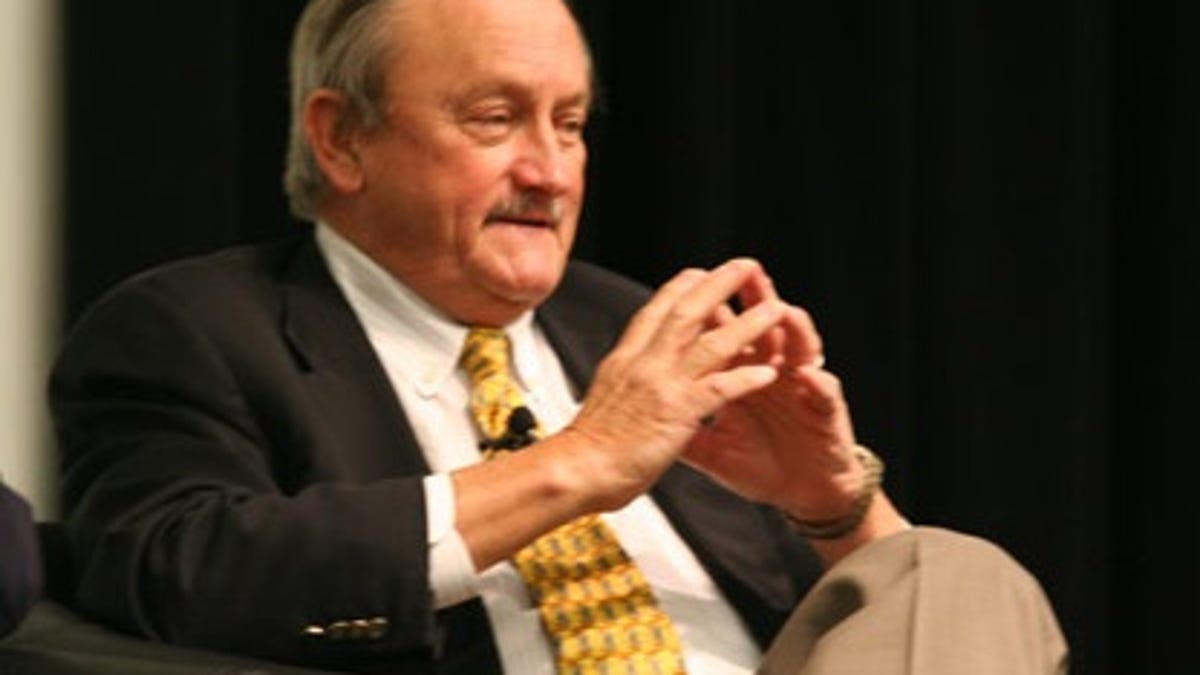William Lowe, the 'father of the IBM PC,' dies at 72
After his proposal for a quick market entry via Atari was rejected, Lowe was given one year to design and produce a personal computer that would be market-ready.

William C. Lowe, the IBM executive who supervised the creation of the company's first personal computer, has died. He was 72.
Lowe died of a heart attack on October 19 in Lake Forest, Ill., his daughter, Michelle Marshall, told The New York Times.
Long a dominant force in mainframe computing for government and corporate customers, IBM became interested in the personal computer market in the late 1970s, well after brands such as Apple, Commodore, and Atari had established a beachhead. Lowe, who joined IBM as a product test engineer in 1962, was director of IBM's Boca Raton Labs in 1980 when Atari approached IBM about marketing one of the game maker's computers under the IBM brand.
Knowing that the company was seeking a quick entry into the market, Lowe took the Atari proposal -- along with an alternative suggestion to acquire Atari outright -- to an IBM management committee, which reportedly pronounced his suggestion "the dumbest thing we've ever heard of."
IBM CEO Frank Cary then tasked Lowe with creating a plan for bringing an IBM product to market within a year, along with assembling a team that could accomplish that goal. Under the codename "Project Chess," Lowe recruited "The Dirty Dozen" -- 12 engineers who would design and build a prototype personal computer dubbed Acorn within one month.
The fruit of their labor was released on August 12, 1981, when IBM launched its new computer, which had been renamed the IBM PC. Because "PC" stood for "personal computer," IBM was given credit for popularizing the term "PC."
The 5150 PC was powered by a 4.77MHz Intel 8088 microprocessor and came with 16 kilobytes of RAM, expandable to 256K. Bundled with a handful of applications, the IBM PC had a retail price of $1,565.
When the PC was 'Machine of the Year'
A year later, in a move highlighting the growing personal computer revolution, Time magazine eschewed naming a traditional Man of the Year, opting instead to bestow the honor of "Machine of the Year" on the PC.
"The enduring American love affairs with the automobile and the television set are now being transformed into a giddy passion for the personal computer," the magazine wrote in its January 3, 1983, issue. "It is the end result of a technological revolution that has been in the making for four decades and is now, quite literally, hitting home."
Lowe later said his team at the time was more focused on the product than changing history.
"We didn't have any expectation that we were going to change the world," Lowe told CNET in 2001 for a report marking the PC's 20th anniversary. "We could see that the world was changing; Apple was attracting a lot of attention from IBM developers, and we wanted IBM developers to work on IBM products."
Lowe, whose role included forecasting demand for the new PC, reported to the company's senior management that he expected IBM would sell 220,000 units in a three-year period.
"People now come up and ask, 'Why such a small number?'" he said. "But you have to realize that this was larger than the installed base of all of IBM's computers at the time."
After serving as the PC division's president for three years, Lowe left IBM in 1988 during a management shakeup to become an executive vice president overseeing Xerox's office equipment product lines. Lowe went on become chief operating officer at Gulfstream Aerospace in 1991.
Lowe, who the Times reported was born in Easton, Penn., on January 15, 1941, held a bachelor's degree in physics from Lafayette College, which is located in Easton.

